CoMA Manchester: ‘Streaming Blue’ Continued
12 February 2024
Introduction
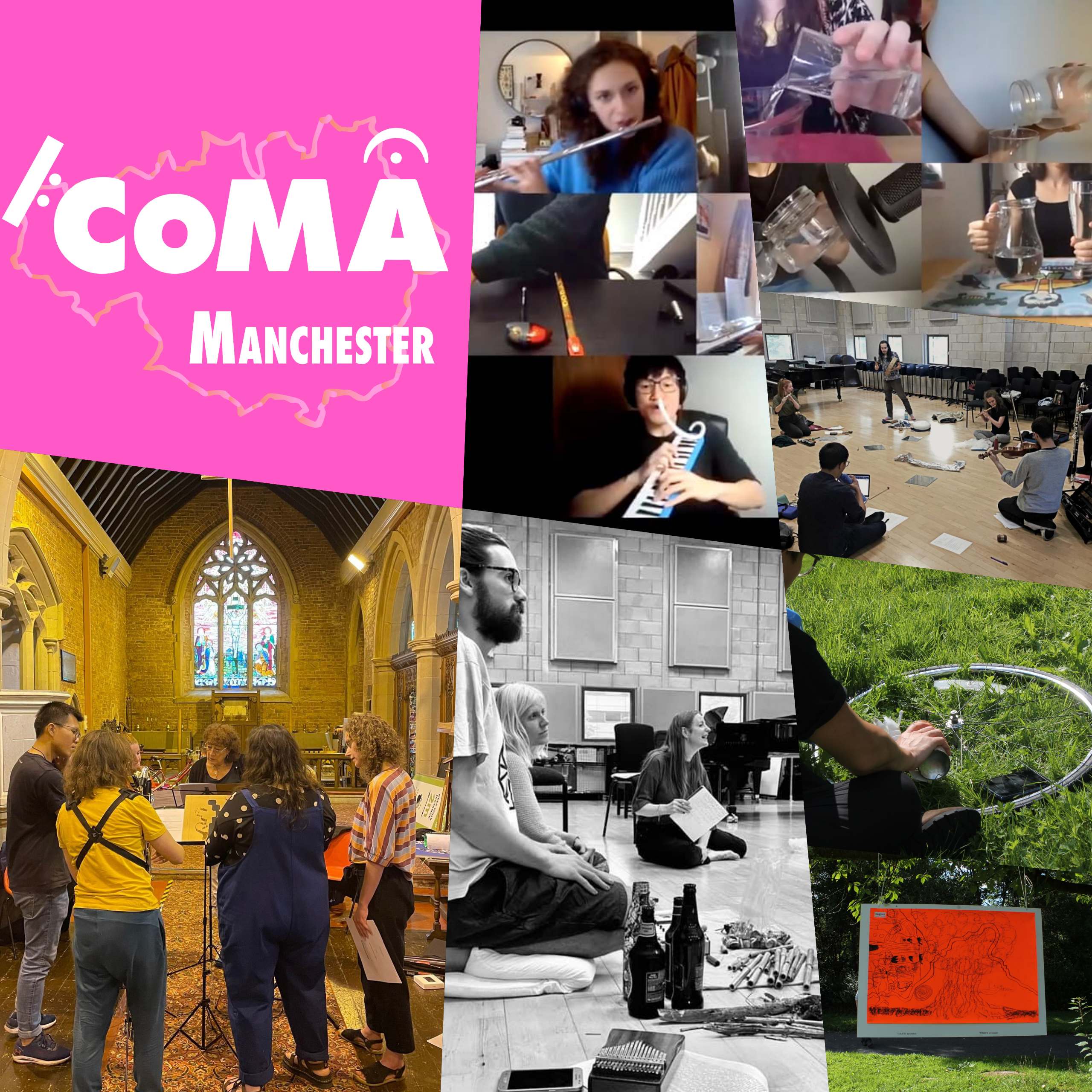 A dynamic part of the international Contemporary Music for All (CoMA) network, CoMA Manchester is a community-based new music group of all-ability instrumentalists and sound-makers. Since 2020, the group has successfully led a series of concerts, exhibitions, and public outreach events entitled ‘Streaming Blue’, musically connecting with the diverse local spaces in and around Greater Manchester.
A dynamic part of the international Contemporary Music for All (CoMA) network, CoMA Manchester is a community-based new music group of all-ability instrumentalists and sound-makers. Since 2020, the group has successfully led a series of concerts, exhibitions, and public outreach events entitled ‘Streaming Blue’, musically connecting with the diverse local spaces in and around Greater Manchester.
The group worked closely with RNCM student composers Helena Zyskowska, Tanguy Pocquet du Haut-Jusse, and Alex Chapman last year to develop three new pieces as a continuation of this series, which culminated in a world-premiere event at the Chorlton Arts Festival in May 2023.
In this PRiSM Blog, Ellen Sargen (Artistic Director of CoMA Manchester & PRiSM Doctoral Researcher) and Bofan Ma (PRiSM Post-doctoral Research Associate & Chair of CoMA Manchester), alongside the students involved, share their collective journey with CoMA musicians into Manchester’s green & blue spaces.
CoMA Manchester: ‘Streaming Blue’ Continued
By Ellen Sargen, Bofan Ma, Helena Zyskowska, Tanguy Pocquet du Haut-Jusse, Alex Chapman
Ellen Sargen & Bofan Ma
CoMA Manchester is formed of professional and leisure-time music makers who come together regularly to perform from accessible open scores. These scores often use text and graphics to convey musical information, inviting players to create sounds by ways untethered from their technical capability of playing an instrument.
To some extent, CoMA Manchester is a group focused on improvisation, experimentation, and found sounds. Being a community ensemble also means that its forces, or instrumentation, vary tremendously from rehearsal to rehearsal, and from project to project.
The ensemble often comes with a blend of orchestral and non-orchestral instruments, from melodicas, ocarina, bass clarinet, to even recycled household objects.
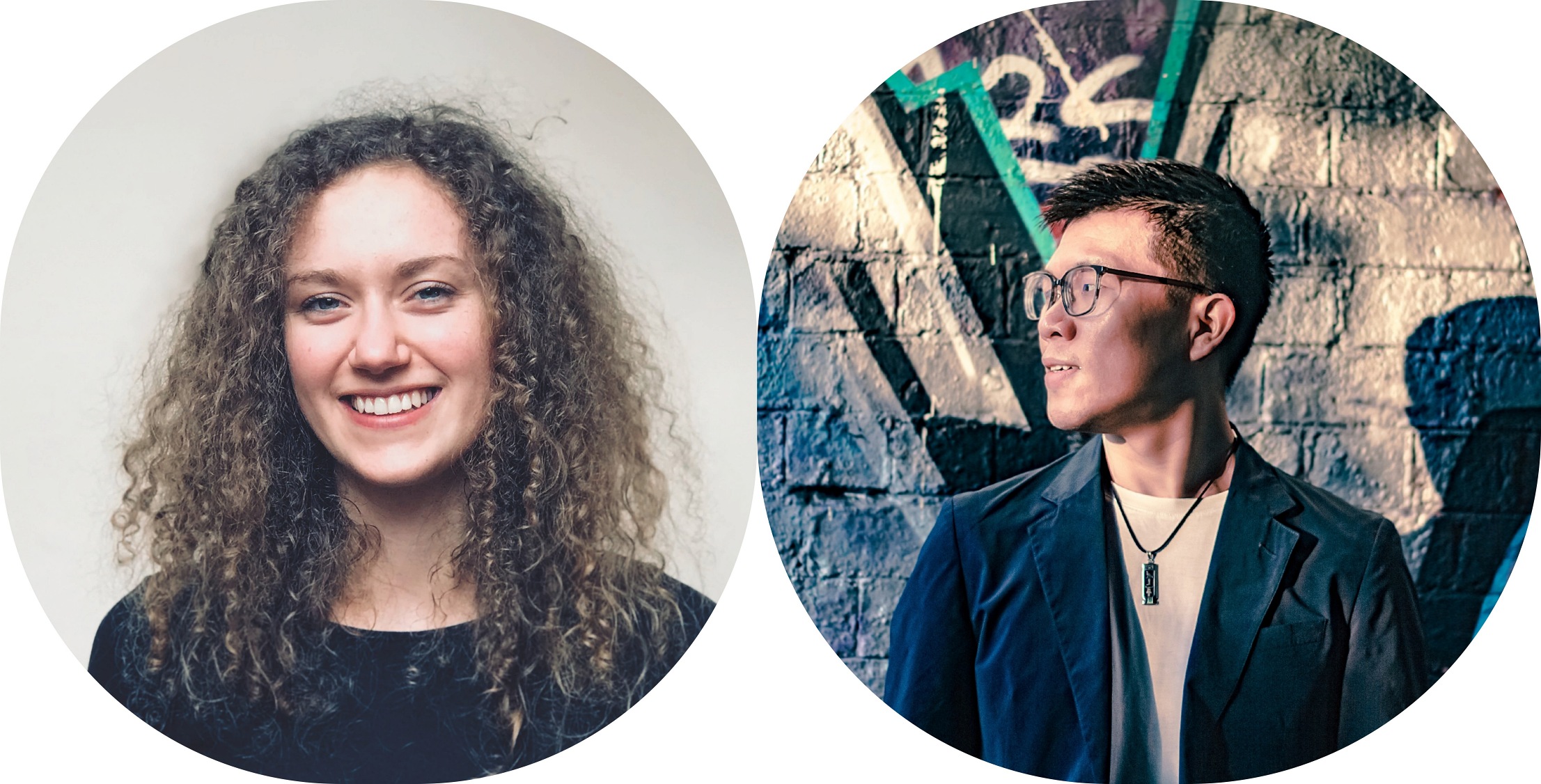
Left: Ellen Sargen | Right: Bofan Ma
The members also range from adult instrumental learners, local band members to professional orchestral musicians. It exists upon the collective joy of experimenting with sounds, upon a continued pursuit of accessible ways of exchanging musical ideas, and upon sharing this experience with people near and far.
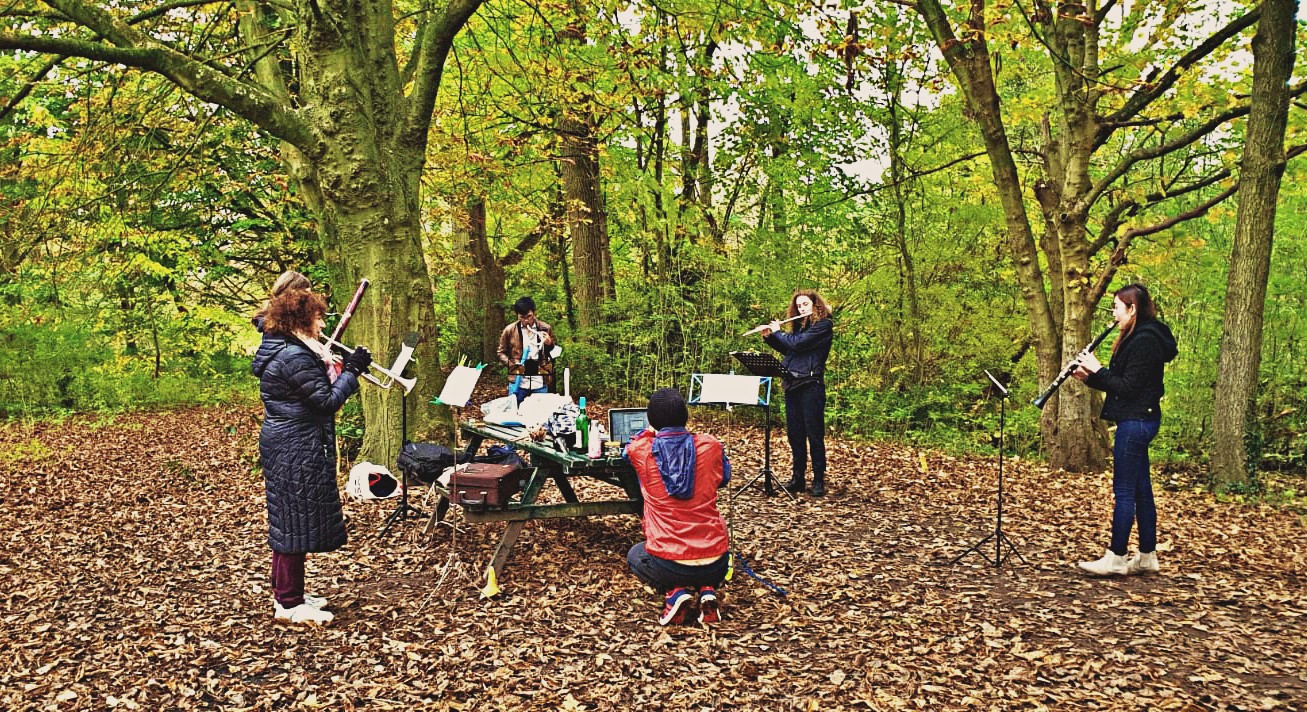
CoMA Manchester rehearsing in Fletcher Moss Park, 2020.
Revived during the Covid-19 lockdown in early 2020, the ensemble started out as merely an online interest group, with members from across Manchester & the Northwest getting together every fortnight over Zoom.
It was only when social distancing rules got loosened up later that year, that the group was able to meet face to face for the first time, and to play together in an outdoors setting.
For more than a year, rehearsals often took place in the woods of Fletcher Moss Park in South Manchester, surrounded by local birds, squirrels, joggers and dog-walkers. And such unique shared memories pretty much shaped CoMA Manchester as an ensemble to this day.
The ‘Streaming Blue’ series commenced in summer 2021, supported by an Arts Council England National Lottery Project Grant. It has seen the group partner with the nationwide charity Groundwork, delivering workshops to school children in North Manchester on making field recordings and graphic scores reflecting their own connection with Manchester’s River Irk.
The series also saw the ensemble collaborate with guest artists and composers to create new works, leading to performances in Phillips Park along the River Medlock (East Manchester), as well as in Alexandra Park in the south of the city – all inspired by stories told by the local communities concerning the long-lasting impact from Manchester’s industrial past, as well as the city’s vision to revitalise some of the most impacted areas.
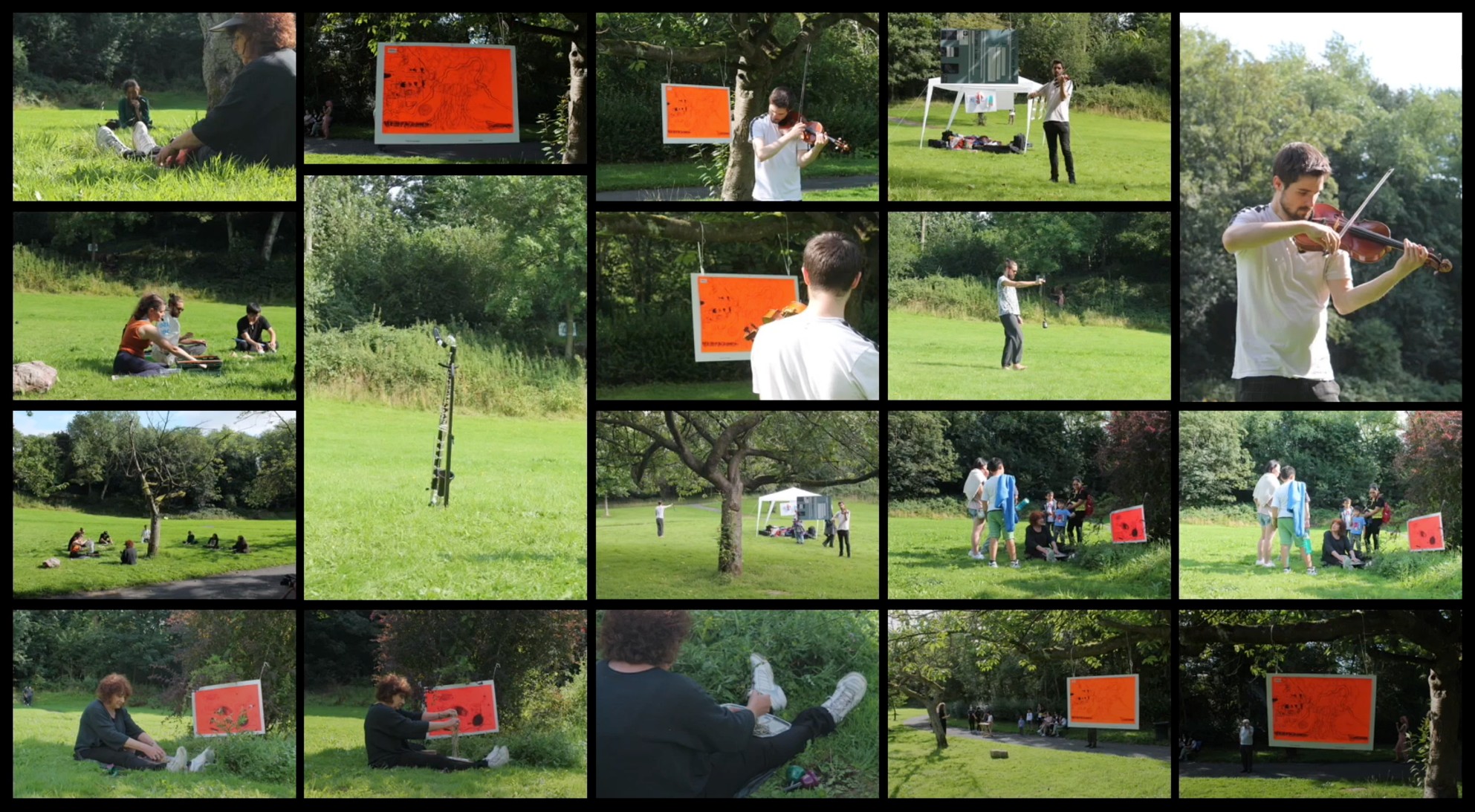
‘Streaming Blue’ in Phillips Park, East Manchester, 2021.
For example, the award-winning sound-artist Kelly Jayne Jones responded to the history (of severe pollution) and rewilding of the Moston Brook corridor, through a mesmerising soundscape created using spoken words, field-recordings, and live performance with water sourced from the river itself.
On the contrary, composer Shaun Davies choreographed an immersive performance installation, allowing an audience to be submerged in a bed of real and synthetic water sounds – presented by roaming ensemble members through portable Bluetooth speakers.
This all said, it was exciting for us to be able to continue this series, and to partner with PRiSM and the RNCM School of Composition in this past year.
Whilst it might be true that composing for CoMA Manchester is no easy task given the ensemble’s way of working, Helena, Tanguy, and Alex all embraced this intriguing challenge and fully immersed themselves in the ensemble’s highly dialogic culture of experimentation and musical wayfaring.
It was with a great joy that we’d been able to share with them this side of music-making, and to shape three enthralling new works alongside them. And we are all proud to share the end results at the Chorlton Arts Festival, and through video documentations featured as part of this blog.
This all is a great reminder that ‘Streaming Blue’ is essentially about a state of mind, about a sustained willingness to engage conversations on accessibility, vocabulary, musical meaning and its socio-cultural significance. It is also about, to a large extent, composing music through re-learning how we communicate music, and how music communicates.
The ensemble is currently busy preparing for the upcoming international Contemporary Music for All Festival, with a headline Manchester Event taking place on Saturday 23 March 2024. Encapsulating everything we’ve been exploring over the last 4 years, we will present an exciting programme featuring many new works composed by our own ensemble members. We very much look forward to it!
Helena Zyskowska
 My piece Psithurism is a graphic score for open instrumentation based on a picture of a tree. Cherishing the increasingly scarce green spaces around Manchester city centre, I want it to embody the swaying of trees which is their natural method for the dissipation of the energy exerted upon them by the wind.
My piece Psithurism is a graphic score for open instrumentation based on a picture of a tree. Cherishing the increasingly scarce green spaces around Manchester city centre, I want it to embody the swaying of trees which is their natural method for the dissipation of the energy exerted upon them by the wind.
Psithurism – the sound of trees moved by the wind – also suggests how the piece is played. The players move onto the next cells once one of them decides to – they are the ‘wind’.
It was an incredible opportunity to work primarily with and for people, which taught me the importance of versatility and collaborative dialogues throughout the compositional processes. Working this closely with CoMA musicians freed me from thinking strictly about the notes and musical parameters.
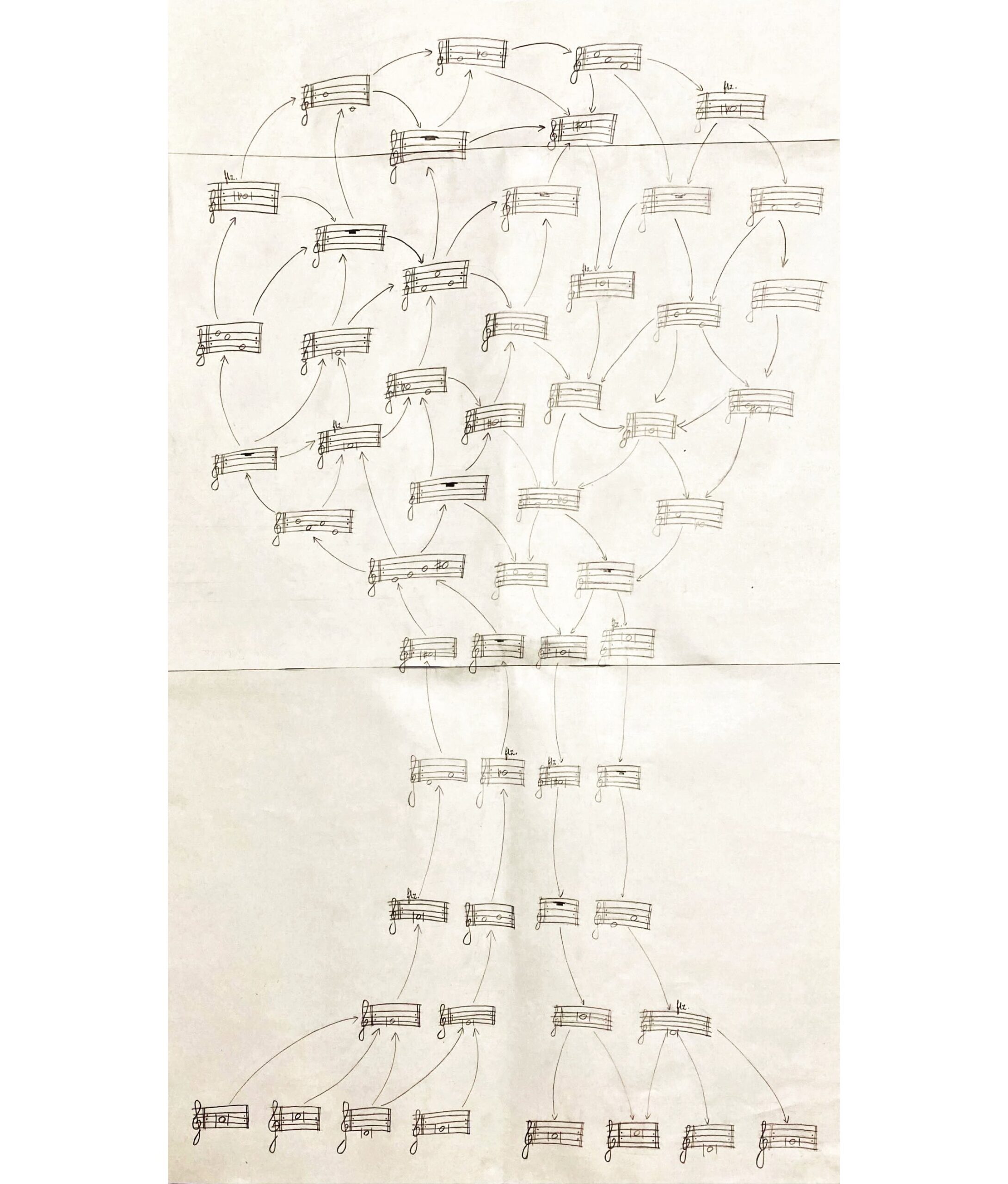
Zyskowska (2023): Psithurism | Score excerpt
It was an interesting experience to write music that needs to work in all circumstances, for an amateur group with flexible instrumentation. I found it very fulfilling to be able to compose music for people who are not professional musicians but enjoy music to the same extent.
Tanguy Pocquet du Haut-Jusse
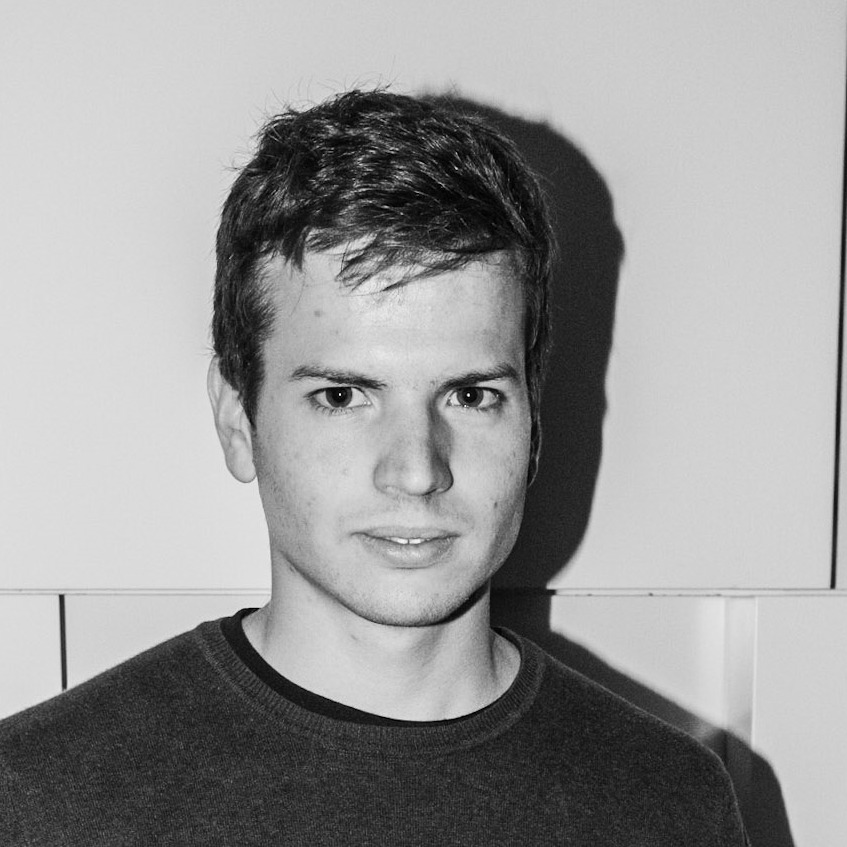
All emerged from a chord that is filtered out of a recording of the River Mersey, in South Manchester, my work was an experiment in line-writing and an exploration of the superimposition of these lines to form a dense, continuous texture — a study of accidental counterpoint.
It features a limited, modal, harmonic palette, from which bribes of melodic ideas are derived, as cells, between which the performers are free to wander, at their own pace.
The piece takes inspiration from some of Claude Vivier’s meandering melodic writing and Bryn Harrison’s approach to repetition.
Both were reinterpreted through my own freer, time-spaced approach, resulting in something that starts in medias res, and ends somewhat arbitrarily, but could go on for much longer.
Writing for an open ensemble made up of players of all levels, while maintaining coherence with the music I usually write (working with a limited harmonic vocabulary; exploring stasis, repetition and non-narrative structures; working with electronics; etc.) was a particularly rewarding challenge.
I really enjoyed the workshop sessions we had as I was writing the piece, starting with the melodic cells, and progressively coming up with rules for the performers to move through the material, as we discussed the piece together.
I am particularly happy with how collaborative this project was, a very different approach to a lot of the instrumental music I write, but which led to a piece I still feel connected to.
Alex Chapman
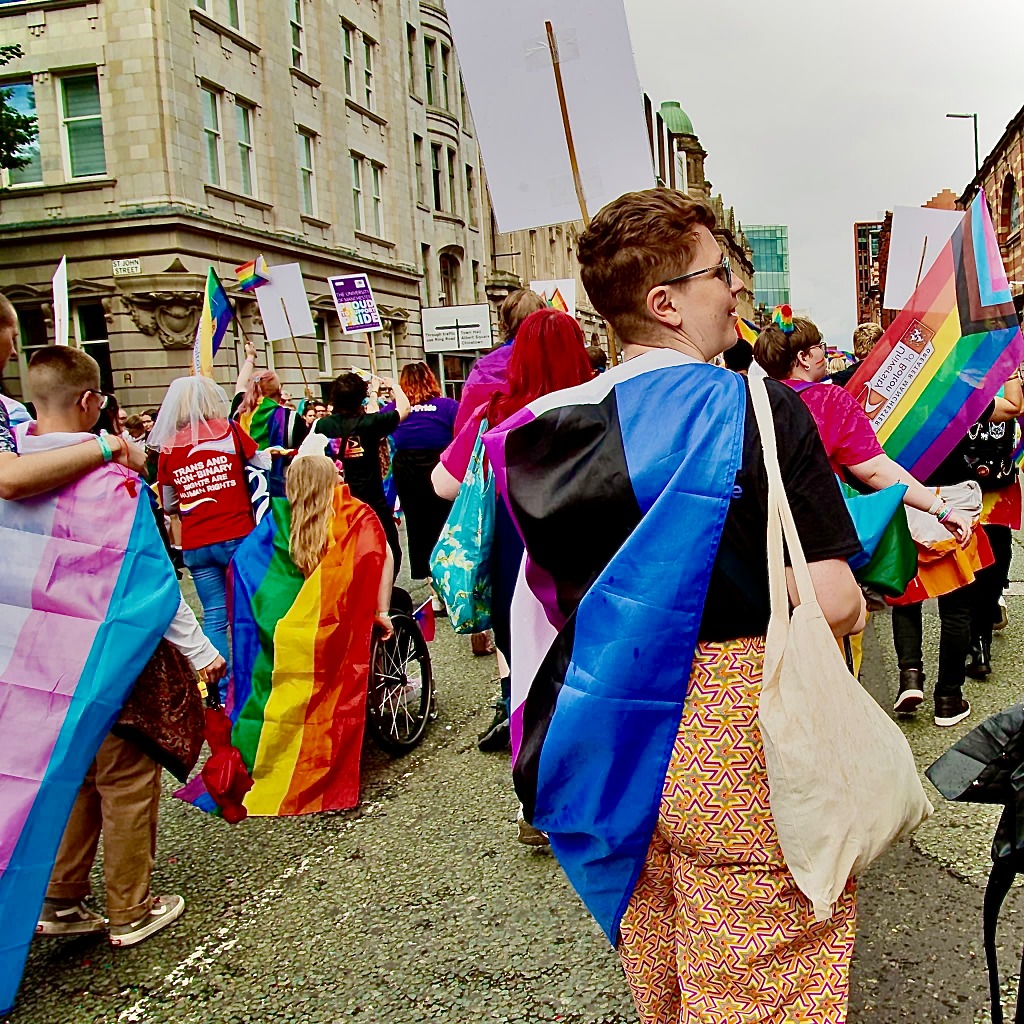
My piece, The Erratic Adjengar, is a humorous attempt at a Jenga game gone wrong. Adapted specifically for CoMA Manchester from an earlier work for percussion septet, it involves two rhythmic and aesthetic modes of music: a slow, lengthly version alongside a fast and chaotic mode.
Working with a community-based ensemble gave me the chance to experiment with complex rhythmical formulas through open scores, obscure instruments (e.g. bottles of water filled with varying amounts), and figuring out how much control I really wanted to administer as the composer.
Through rehearsals, it was interesting seeing how the creativity from the ensemble was distributed through different instruments/parts, how it was performed, and the use of acting and performance that was involved in their process.
I’m always keen to explore how different my music will be performed each time. The reality of not knowing when the jenga tower is going to fall is part of the anticipation of the work.
In the multiple performances by CoMA Manchester, each performance had different mode lengths, piece timings, and surprises that emerged from performance (e.g. the distractor’s teasing actions that happened throughout). This made the process of working on this piece with them even more valuable due to elements such as the distractor’s unique attempts to annoy and disrupt the gameplay (very well played!).
This whole experience has diversified my thinking as a composer, including how I think creatively and accessibly about my work.
Acknowledgement
This project is supported by PRiSM, the Centre for Practice & Research in Science & Music at the Royal Northern College of Music, funded by the Research England fund Expanding Excellence in England (E3).
With thanks to musicians featured in the recording of the three new works: Ellen Sargen, Bofan Ma, Johanna Leung, Amy Jolly, Jane Fletcher, Alex Chapman, Natalie Summers, Sam Longbottom; and recording engineer Jack March.
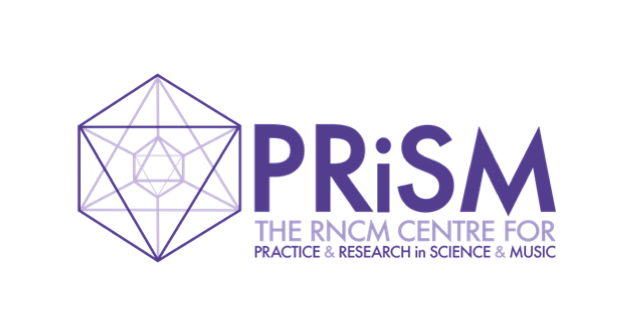

![]()

